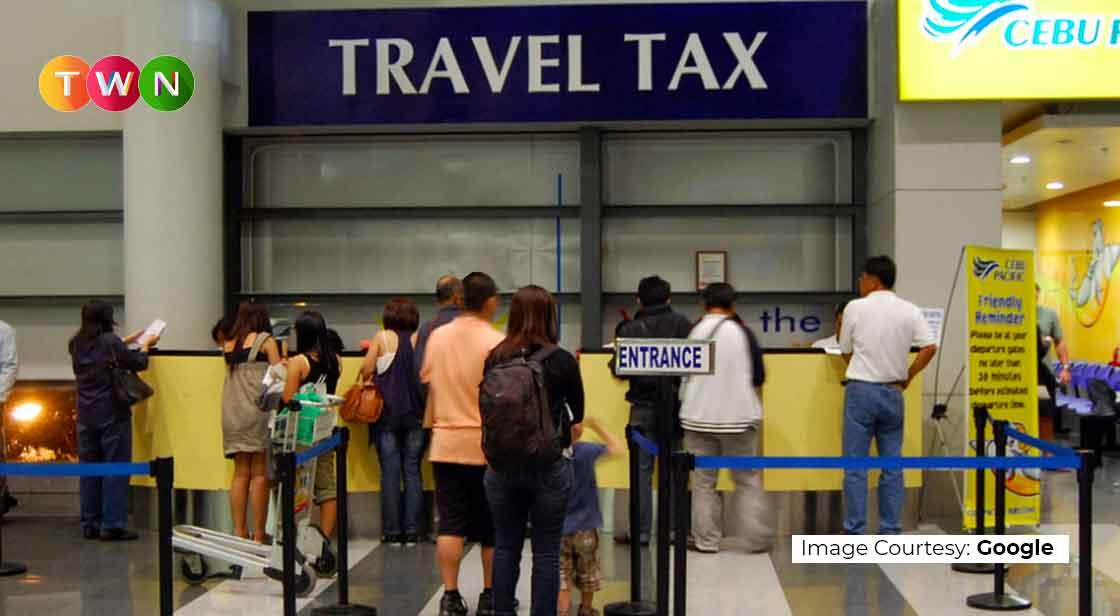5 Things You Need to Know About Taxes for Abroad Travelers

Blog Post
Americans sure love to travel. In 2019, over 45 million Americans traveled abroad, some for business and others for pleasure. While the pandemic has reduced those numbers, the desire to see and hear the sights and sounds of the world prevails.
Here's a quick travel tax guide to getting you started, whether you are traveling for business or amusement. #TWN
Can You Work Remotely from Other Countries?
Yes! Some have even decided to take advantage of the current situation and travel the world.
Some countries, such as Estonia and Bermuda, have offered special visas for Americans who want to work temporarily abroad to boost flagging visitor numbers. Because many companies have allowed their employees to work from home for the foreseeable future, the idea is to attract people who may want to continue working in an exotic location.
It appears to be the ideal solution for those who do not want to spend their time cooped up in their homes or apartments. They get to live in a foreign country while continuing to work at their previous jobs. However, traveling and working abroad entails responsibilities, the most important of which is paying your taxes.
What is Your Travel Tax Situation?
Your tax situation is determined by where you stay and how long you stay abroad. Over 10 million Americans are thought to be long-term residents of other countries. Some of them stay in one place, while others travel from one country to the next.
But what does this have to do with you?
You pass the Physical Presence Test if you spend a total of 330 days abroad in a 12-month period. Meeting this requirement is critical if you want to take advantage of the numerous tax breaks available to American ex-pats and travelers.
Also Read: Travels And Tourism — Know More About It!
You must keep track of the time you spend abroad. Even if you fall one day short of the 330-day requirement, you will lose any ex-pat tax benefits that would have helped you reduce your tax liability.
Your length of stay in that country may also determine your tax residency. It means you'd be subject to the tax laws of that country. Before making any major decisions, you must conduct thorough research.
Do you have to pay US Taxes if I work overseas or Travel Abroad?
Yes. The United States is one of only a few countries in the world that has implemented a citizenship-based tax system. This means that even if they are based in another country, American citizens and permanent residents (also known as Green Card holders) must pay US taxes and file a federal tax return.
The IRS taxes your worldwide income as well. Assume you decided to start a small side business while abroad while continuing to work for a company based in the United States. Even if you do not live in the United States and your business is located in another country, both sources of income are subject to US tax laws.
How to Reduce Your Tax Liability?
While living and working abroad is exciting, it also presents several challenges. You must navigate two different tax systems, which may result in double taxation. If you want to reduce your tax liability, you must understand all your options.
Foreign Earned Income Exclusion
The Foreign Earned Income Exclusion (FEIE) is one of the most significant tax benefits available to ex-pats.
The FEIE allows ex-pat taxpayers to deduct a part of their foreign earnings from their federal income tax. The FEIE threshold for the tax year 2021 is $108,700. Even if your income does not exceed the threshold and you have no tax liabilities, you must still file a federal tax return.
The taxpayer must meet the Physical Presence Test to claim the FEIE.
Foreign Tax Credit
Another tax benefit to be aware of is the foreign tax credit. Expats who have paid income tax to another country can claim a dollar-for-dollar credit against their US tax bill.
Assume you paid $1,000 in income taxes to a foreign government. You can take a tax credit to reduce your tax bill in the United States by the same amount.
You cannot claim a tax credit for taxes on excluded income once you have claimed the FEIE. However, you can claim a tax credit for foreign-earned income that exceeds the FEIE threshold.
How to File an Ex-pat Tax Return?
You must organize your finances before deciding to relocate abroad. Moving to a foreign country without a proper plan can result in tax issues. If you need help clarifying your tax situation, you can always consult with a tax professional.
If you have enjoyed reading this Blog, TWN recommends you to read our Blog on "5 Cheapest Countries to go For Studying Abroad." Click on the Image Below!
You May Like
EDITOR’S CHOICE













